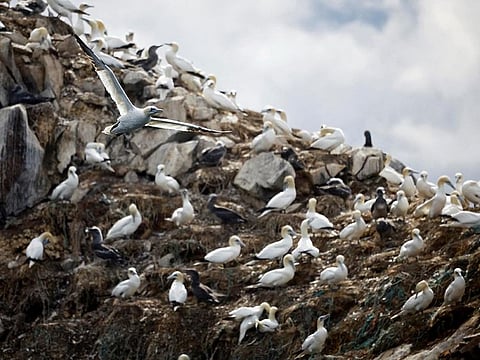France on 'high' alert for bird flu after new cases detected
The 'high' risk level implies that all poultry should be kept inside on farms

Paris: France raised the risk level of bird flu to 'high' from 'moderate' on Tuesday after new cases of the disease were detected, forcing poultry farms to keep birds indoors to stem the spread of the highly contagious virus.
The decision by the agriculture ministry was published in the Official Journal on Tuesday.
Avian influenza, commonly known as bird flu, has led to the culling of hundreds of millions birds worldwide in recent years.
It usually strikes during autumn and winter and has been spreading in many European countries over the past weeks, including Germany, the Netherlands and Belgium.
France said last week it had detected a first bird flu outbreak on a farm this season in Brittany, in the northwest.
Another outbreak was detected among turkeys in the Somme department in northern France last week, said Yann Nedelec, director of French poultry industry group Anvol.
"We are entering the riskiest period going from November to February/March with temperatures going down and active migration flows," Nedelec said.
The "high" risk level implies that all poultry should be kept inside on farms and additional security measures taken to avoid a spread of the disease.
Although the bird flu is harmless in food, its spread is a concern for governments and the poultry industry due to the devastation it can cause to flocks, the possibility of trade restrictions and a risk of human transmission.
To counter the disease, France launched a vaccination campaign in early October, initially limited to ducks, which can easily transmit the virus without showing symptoms.
The outbreak of bird flu this season has put the industry on watch to see if France's strategy of vaccinating birds will prove effective.
France aims to vaccinate over 60 million ducks but only 70% have received a first shot and 40% were fully vaccinated by the end of last month, Marie-Pierre Pe, director of France's duck and foie gras industry group CIFOG, has told Reuters.
Sign up for the Daily Briefing
Get the latest news and updates straight to your inbox



